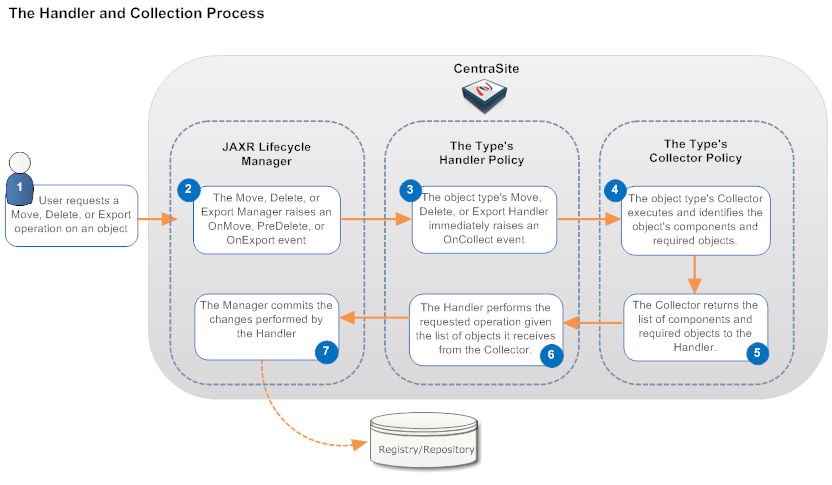What Are the Roles of the Collector and Handler Policies?
Handler policies and collector policies operate together to delete, move and export composite objects.

The collector policy produces a list of the components (shared and nonshared) and required objects that are associated with a given instance of a composite object.

The handler policy performs the delete, move, or export operation (depending on the type of handler that has been invoked) on the given object based on the list of components and required objects the handler receives from the collector.
For example, when you delete an instance of a Service object, the Service delete handler policy invokes the Service collector policy to identify the set of components and required objects associated with that particular instance of a Service (for example, its operations, bindings, interfaces, XML schemas, supporting documents, and so on). The delete handler then deletes the Service object and all of the nonshared components that were identified by the Service collector.
The following diagram illustrates how the handler and collector policies interact during a move, delete, or export operation.

